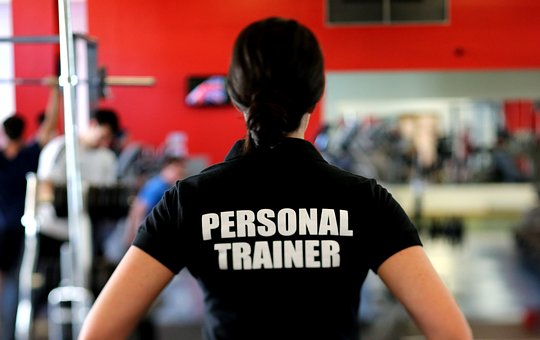
Everyone desires to have a superior state of health and enjoy a longer life surrounded by wellness. As more individuals come to realize that they have the power to maintain their overall health and lessen the risk of developing a chronic illness, wellness coaching is becoming increasingly popular as an advantageous preventive aid.
Health experts who specialize in wellness are increasingly being sought out for help when someone wishes to improve their general attitude in relation to their wellbeing, or to combat negative outcomes associated with their health.
Medical professionals are strongly suggesting that their patients live healthier lives by incorporating healthier habits into their daily lives.
Wellness is bigger than just health though. It could be confusing to decipher the distinctions between a health coach and a wellness coach. We’ll break it down for you.
What is a Wellness Coach?
A wellness coach operates in a slightly different manner than a health coach. Health coaches are experts in looking after one’s physical well-being, including proper nutrition and exercise. They could also give advice on how to maintain good health in response to specific illnesses or long-term medical conditions.
In contrast, wellness coaches take a more holistic approach when working with their clients. They perceive all aspects of a person’s life as linked and, thus, essential insight to aid in resolving any issues pertaining to health and well-being.
They recognize that an individual’s well-being involves taking into account their job-related tension, not being satisfied in personal relationships, and lasting inflammation.
What Does a Wellness Coach Do?
Wellness coaches work in a number of different ways. The most typical form of coaching involves a single individual working with a client one-on-one.
Wellness coaches will help their customers to comprehend their present state of health, wellness, and general prosperity. They will pay close attention to pivotal pieces of data that could help find an answer.
After fully comprehending the situation of their patient, they will begin to get a better idea of what their ambitions and wishes for wellbeing are. A wellness coach can be useful in helping someone identify their wellness habits and perspectives, in absence of profoundly determined standards.
In conjunction, they will devise goals that are suitable for the person, and create a plan that is maintainable, takes into account bettering their overall existence, and offers them transformations that they are able to persist in working on for eternity.
Wellness coaches could also do these activities in a group environment.
They might put on a group training course, instruct a set of courses, manage a corporate health initiative, or aid others by writing or informative material. A wellness coach can provide guidance to individuals on how to get to a healthier, more balanced state of wellbeing in their lives. They can help people assess where they’re at currently with their overall wellbeing and what can be done to improve it.
Apart from running their own business, wellness coaches may also be employed by an organization. This could possibly refer to a facility that specializes in promoting health, such as a wellness center, business that produces wellness programs, individual medical service, physical fitness facility, or any other institution focused on health and wellness.
Education Requirements for Wellness Coaches
No matter what your educational history is, you can still become a wellness coach. Many programs exist which do not necessitate a particular educational background and provide aid for those taking up wellness coaching as a fresh career.
If you want to get a job after getting your wellness coaching certification, it would be beneficial to have extra educational qualifications so you can be more desirable to potential employers.
Here are a few things you might like to have in order to become competitive in the field of wellness coaching:
- A bachelor’s degree in a field related to health and wellness, such as nursing, public health, health education, psychology, nutrition, or similar.
- Solid knowledge of weight management, stress reduction, nutrition, developmental needs and requirements, dealing with chronic conditions, support for those with diseases, and more.
- Job experience in a health-related field, such as being a nursing assistant, nutritionist, holistic health practitioner, or other role.
- A passion for health and wellness, people-oriented skills, and the ability to communicate well.
- Additional related certifications and educational experiences that can inform and boost your understanding of health and wellness, such as attendance at conferences, workshops, and training focused on holistic health.
To get a full understanding of all matters to consider when selecting a wellness coach training program, have a look at our thorough manual accessible here.
Wellness Coach Skill and Experience Requirements
Being a wellness coach necessitates an intense dedication to working one-on-one with customers, as well as a burning enthusiasm for aiding people while they modify their lives.
You must maintain a great deal of hopefulness to be a successful agent of transformation. It is necessary to establish significant limits in your life and practice self-care in order to have the capacity to be focused on your customers.
It is critical to be an effective wellness coach, so having a well-established wellness practice is a must. It is essential to demonstrate that you mean what you say in order to be taken seriously and to also have the direct experience that contributes to understanding and successful plan.
It is not a must-have to have experienced similar hardships as your clients, but as you advance in your personal wellness journey, you will master the capability to sympathize with your clients. You will be a role model and provide an example of what leading a healthy way of life can resemble.
To be successful in leading a group coaching and education program, it is important to possess the skills to successfully manage disputes, lead meaningful conversations, and communicate effectively in a group setting.
You will need to be able to connect with each individual based on where they currently stand in terms of their personal health and wellbeing, while at the same time, keeping the whole group progressing. Work out a way to sustain people’s enthusiasm and inspire them to join in.
You must be willing to always learn and keep abreast of the most recent evidence-based practices, health regulations, wellness preferences, and other important elements of learning to do the job correctly.
Having a previous education and/or working experience related to healthcare and/or wellness can give you an upper hand. Nevertheless, it is possible to have success in this industry by simply displaying enthusiasm and dedicating yourself to attending educational events and then utilising the learned knowledge in your work.
What Do Health Coaches Do?
Health coaching can be seen as the bridge between health-related understanding and a shift in behavior. Health coaches possess an understanding of food habits, lifestyle choices, and dietary requirements. They comprehend the disparate influences on wellness, allowing them to sympathize with the health issues their clients face.
Trainers have the ability and capacity to help customers create new routines and produce permanent modifications. Health coaches stand out from other healthcare personnel because they don’t just provide information – they encourage people to make positive changes in their lives.
A Client-Centered Approach
Health coaches take a personalized approach to working with individuals. Coaches are not knowledgeable in determining the best course of action for their customers. Rather than leading their customers, the professionals act as allies and helpers, aiding their clients in making progress, forming plans, and attaining objectives that are determined by their customers’ thoughts, interests, and background.
In the coaching relationship, the client is viewed as the expert as opposed to the coach being the expert. Clients are aware of their physical being, the experiences they have gone through, and what methods have been successful (or unsuccessful) for them in the past.
The coach takes a customer-oriented approach so that the patron establishes the main point of the gathering and has control over the revelations, the moves to take, the task, and the success. This environment encourages them to bring about considerable and persistent advancements in their health.
The Art and Practice of Health Coaching
What is it that makes people successful in their health and well-being goals when working with a health coach, compared to when they have tried to make these changes on their own? Part of this success comes from basic steps like helping clients set goals and create action plans, but much of the success also comes from:
- A coach’s presence
- How coaches listen and what they listen for
- The types of questions that coaches ask
- The collaborative relationship that coaches develop with clients
Occasionally, mentors may just jolt a response or encourage some insight with a simple inquiry or assertion, prompting people to reflect on their wellbeing in an unprecedented way. Coaches also make use of their gut instinct, show understanding and connectedness towards their customers, and build a friendly relationship with them, transforming the art of coaching.
Health coaching is a partnership between coaches and clients that guides clients toward the changes that they want to make. Coaches and clients develop a relationship built on trust and respect that allows them to explore clients’ values, reasons for change, and what’s possible.
Learning health coaching necessitates both instruction and experience to become adept at it.
Some Tools of the Trade
Coaches can use various techniques such as questioning, reflecting, confirming and staying quiet at the suitable moment to help clients understand why they want to make changes and explore the subject further. They control the direction of the talk by inquiring certain queries when appropriate and shepherding the meeting with processes including initiating a plan, examining, organizing, and ending. Essentially, it is the coaches’ responsibility to lead a coaching session.
Coaching tools and techniques fall into a number of broad categories:
- Motivational interviewing, which helps people to discover their own motivation and strategies for change
- Positive psychology, which teaches people to build on what’s working, rather than fixing what’s broken
- Understanding the stages of change, which allows health coaches to offer the appropriate type of support at each stage of change
- Habit formation and reversal, which supports people to create new, healthy habits and reverse unhealthy ones
- Accountability and goal setting, which helps people to stay on track and achieve their goals
The Coaching Mindset
The way you interact with the people you are coaching has a strong influence on how effective the coaching process is. Instructors are taught to pay attention, to observe, and to tailor their approach to singular customer requirements based on what they hear and observe. Coaches become attuned to cues in the client’s body language, how their energy shifts, the emotions that are present, and the information that the client chooses to not address.
Coaches should demonstrate an absolute support for their clients all the time, no matter what results they get from their efforts. Clients who have had a streak of success might have difficulty in their next week. Customers who have appeared cheerful discussing one topic may abruptly become bashful or quiet when the conversation alters. No two customers have identical characteristics and no two meetings with clients are the same. Coaches must have faith in the ability of their clients to alter and recognize their clients as the specialists in their own lives, while guaranteeing that all connections are courteous and nonjudgmental.
Pretend that you are a customer and think of the inspiring feeling you get knowing that the coach you are working with believes that you are capable of succeeding despite obstacles and achieving something you once thought was impossible.
What Does it Take to Become a Great Coach?
Coaches aren’t there to lecture, direct, or prescribe. They are there to enable clients to choose more beneficial options for themselves. Giving up all individual plans, conquering one’s own feelings connected to customer issues, and learning to attentively listen from a neutral, impartial position is necessary. What else makes a great coach?
Practice
Practising coaching is essential to becoming proficient in it; this applies to any field or subject. This begins with instructor instruction, with courses that supply a vast amount of chances for drilling, making their alumni capable of success. Coaches can also gain advantages by engaging in coaching with their fellow coaches, utilizing the assistance of a tutor coach, and conversing with other instructors regarding the act of coaching. Novice coaches should bear in mind that it requires time to become proficient at coaching, and refrain from problematically comparing their efforts during the initial stages to the experiences of other coaches who are already part way through the process.
Self-Care
Coaching is a rigorous practice. It necessitates being able to put oneself in one’s client’s shoes, to have a deep understanding of oneself, to show respect and acceptance for one’s clients, and to refrain from judging them. Clients may not necessarily fulfill the tasks that they agree to do, and some may anticipate you to give them instructions. A coach needs to be adept at handling expectations and feelings, staying on track during sessions, and being attentive and open to new ideas. Coaches who take good care of themselves are able to ensure that coaching is a rewarding, satisfying and long-term activity.
Some self-care tips:
- Take time for personal reflection through journaling and meditation
- Practice what you preach around diet, exercise, and lifestyle
- Maintain a manageable client load
- Schedule your clients with enough time between sessions to write notes and reset yourself














